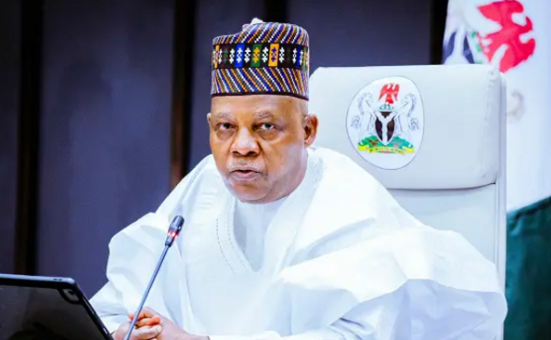In a historic event that marked a significant milestone for Hajj operations in Nigeria, Vice President Kashim Shettima, on Friday, May 9, officially flagged off the inaugural airlift of Nigerian pilgrims for the 2025 Hajj exercise from the Sam Mbakwe International Cargo Airport in Owerri, Imo State.
This inaugural airlift, which conveyed 315 intending pilgrims to the Holy Land, is the first ever to take off from the southeastern region of the country in the entire history of Hajj operations in Nigeria. The event attracted high-level dignitaries and stakeholders in the Hajj and aviation sectors, underlining its national significance.
Vice President Shettima, while addressing the gathering, urged the intending pilgrims to uphold exemplary conduct and serve as worthy ambassadors of Nigeria during their spiritual journey in Saudi Arabia. He stressed the importance of discipline, decorum, and reverence, noting that every pilgrim carries not just personal aspirations but the collective image of the Nigerian nation.
He also charged officials of the National Hajj Commission of Nigeria (NAHCON) and contracted service providers to carry out their duties with a high sense of responsibility and accountability, warning sternly against any form of negligence in the execution of this sacred national duty.
Receiving the Vice President at the airport was Governor Hope Uzodinma of Imo State, who was accompanied by members of the state executive council, traditional rulers, clerics, and other notable stakeholders. The governor described the event as a demonstration of the state’s commitment to religious inclusiveness and peaceful coexistence. According to him, the successful organization of the airlift from Owerri also reflects the state government’s strategic investments in the Sam Mbakwe International Cargo Airport, which is now positioned to handle full-scale international operations.
Governor Uzodinma also revealed that in June, Christian pilgrims from the state would be departing to the Holy Land from the same airport, further emphasizing the state’s commitment to religious tolerance and unity. He thanked NAHCON for selecting Imo State as the host for the 2025 Hajj inaugural flight and reiterated the importance of national pride among the pilgrims.
In a symbolic display of national unity, the flag-off ceremony was attended by the Sultan of Sokoto and President-General of the Nigerian Supreme Council for Islamic Affairs, His Eminence Alhaji Muhammad Sa’ad Abubakar III. Also present were the Chairman of the Senate Committee on Foreign Affairs, Senator Abubakar Sani Bello, and the Chairman of the House Committee on Hajj Affairs, Hon. Jafaru Muhammad Ali. The dignitaries accompanied the Vice President to underscore the federal government’s commitment to a successful Hajj operation.
Following the Owerri inaugural flight, an additional 1,307 Nigerian pilgrims were airlifted to Madinah later the same day, bringing the total number of pilgrims transported to 1,622. Flights also departed from Bauchi, Kebbi, and Lagos, handled by three approved Nigerian Hajj air carriers. The Principal Information Officer of NAHCON, Shafi Mohammed, confirmed that four flights were successfully executed across the designated states.
Speaking at the ceremony, NAHCON Chairman, Professor Abdullah Saleh Usman, hailed the event as a watershed moment in Nigeria’s Hajj history. He expressed gratitude to the federal government for swiftly resolving issues related to the Basic Travel Allowance (BTA) for pilgrims, a critical component of the Hajj logistics arrangement. Prof. Usman also lauded the Vice President for his unwavering support and leadership in ensuring a smooth takeoff of the Hajj season.
Vice President Shettima concluded by reaffirming President Bola Ahmed Tinubu’s commitment to the spiritual and logistical success of the 2025 Hajj, noting that all necessary resources have been made available to facilitate a seamless pilgrimage experience for Nigerian Muslims.
The 2025 Hajj flag-off in Owerri not only signifies a geographical shift in pilgrimage operations but also sends a powerful message of national integration, religious harmony, and administrative innovation.







